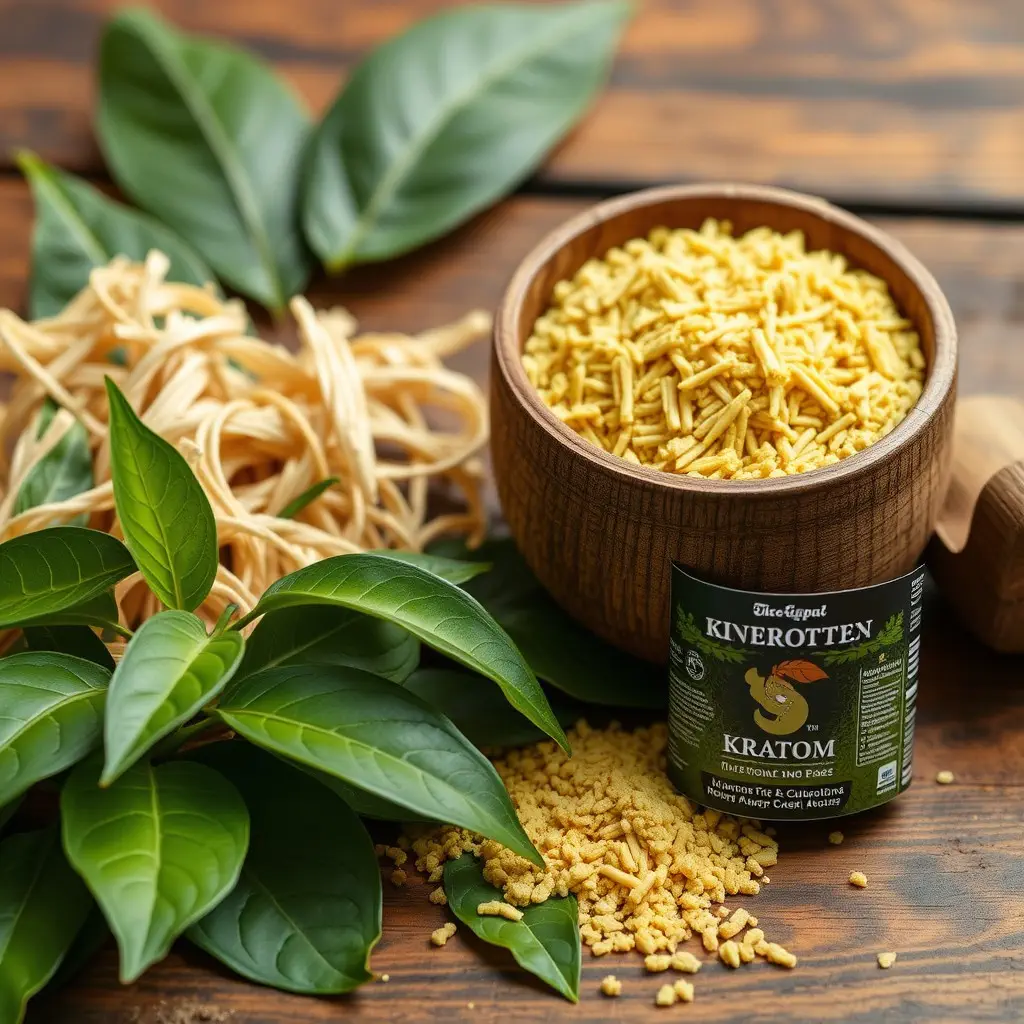Kratom, derived from Mitragyna speciosa, is gaining popularity among athletes and military personnel for its energy-boosting, focus-enhancing, and muscle-sore-reducing properties. While some branches, like the U.S. Army, test for kratom use due to performance and safety concerns, others explore its potential therapeutic benefits such as pain management and muscle recovery. The army maintains strict policies regarding off-duty kratom consumption due to rigorous physical training standards, but advocates argue its non-addictive properties could aid soldiers with chronic injuries or PTSD. Athletes can strategically incorporate kratom into their regimens for enhanced focus, motivation, endurance, and recovery, but personalized guidance from professionals is essential.
“Unleash your peak physical potential with a unique guide on kratom and its role in achieving exceptional fitness. This article explores the science-backed benefits of kratom in enhancing athletic performance, drawing insights from its unexpected connection to military training.
‘The Army and Kratom: Policy and Potential Implications’ delves into the ongoing discussions around kratom use within military circles, including recent policy changes. Meanwhile, ‘Maximizing Fitness with Kratom’ offers a strategic roadmap for athletes and fitness enthusiasts to harness kratom’s power effectively, while addressing concerns about ‘does the army test for kratom’ for those in high-performance environments.”
- Understanding Kratom and its Role in Physical Conditioning
- The Army and Kratom: Policy and Potential Implications
- Maximizing Fitness with Kratom: A Strategic Guide
Understanding Kratom and its Role in Physical Conditioning

Kratom, a natural herb derived from the plant Mitragyna speciosa, has gained significant attention in recent years for its potential benefits in physical conditioning and overall wellness. Often used by athletes and fitness enthusiasts, kratom is known to enhance energy levels, improve focus, and reduce muscle soreness—all essential aspects of achieving peak physical performance. Its unique properties make it a valuable addition to training routines, especially when combined with a balanced diet and regular exercise.
In the context of military fitness standards, it’s interesting to note that some branches do test for kratom use. This is primarily due to concerns regarding its potential impact on performance and safety during operations. However, research suggests that kratom’s effects can vary widely among individuals, making it a complex issue. Understanding how kratom interacts with the body’s natural systems is crucial for athletes and military personnel alike, ensuring safe and effective utilization while avoiding any adverse consequences, especially when striving for optimal physical conditioning.
The Army and Kratom: Policy and Potential Implications

The United States Army, known for its rigorous physical training standards, has a complex relationship with kratom, a natural herb gaining popularity for its potential therapeutic benefits. While kratom’s effects on pain management and muscle recovery have sparked interest among service members, the military’s policies regarding its use are stringent. The Army does not condone off-duty consumption of kratom and has implemented testing protocols to detect its presence in service members’ systems. This policy is driven by concerns over potential impairment, safety, and discipline within the ranks.
Does the army test for kratom? Yes, regular drug screening programs include tests for mitragynine, the primary active compound in kratom, to ensure soldiers remain drug-free during duty hours. The implications of positive kratom tests can be significant, leading to administrative punishments or even legal consequences. However, advocates argue that kratom’s non-addictive properties and potential for mitigating pain could benefit service members suffering from chronic injuries or PTSD. Balancing the need for discipline and the potential therapeutic uses of kratom remains a delicate matter within military circles.
Maximizing Fitness with Kratom: A Strategic Guide

In the pursuit of peak physical conditioning, athletes often seek strategic advantages to enhance their performance and recovery. One substance that has gained attention in this regard is kratom—a natural herb with potential benefits for fitness enthusiasts. While the U.S. Army does not currently test for kratom use (as per public information), its understanding and responsible integration into training regimens can offer unique advantages. Kratom’s ability to boost energy levels, reduce fatigue, and support muscle recovery makes it a valuable tool for those pushing their physical limits.
For athletes, maximizing fitness with kratom involves a strategic approach. Using kratom supplements at the right dosages and times can complement intense training sessions. It may aid in maintaining focus and motivation during grueling workouts, enhancing overall endurance. Moreover, kratom’s potential analgesic properties could contribute to faster recovery after strenuous activities. However, it’s essential to consult professionals for personalized guidance, as proper usage depends on individual health profiles and fitness goals.
Kratom, a natural herb with diverse applications, offers unique benefits in peak physical conditioning. As discussed, its potential to enhance training sessions and recovery has even sparked interest within military circles, as evidenced by ongoing debates on whether the army tests for kratom. By strategically incorporating kratom into fitness routines, individuals can unlock new levels of performance, aided by its analgesic, stimulant, and calming properties. However, it’s crucial to approach its use responsibly, especially considering the evolving legal status and policy implications. Understanding the science behind kratom and following evidence-based guidelines can help athletes and enthusiasts maximize their fitness journey without compromising health or facing unexpected challenges, such as failed military drug tests.






